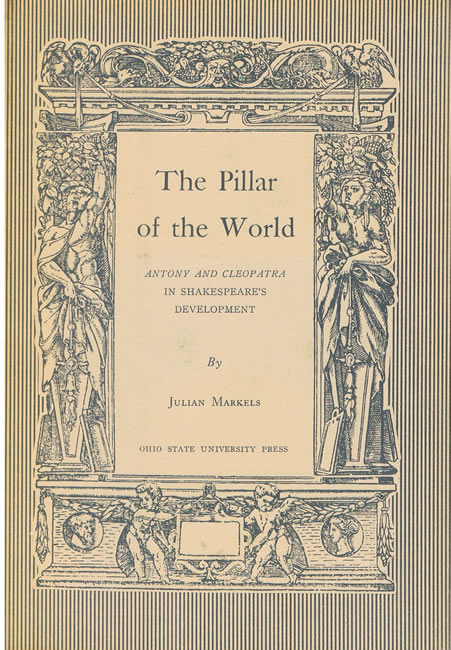The Pillar of the World“Antony and Cleopatra” in Shakespeare’s DevelopmentJulian Markels |
 1968 Literary Criticism / European / English, Irish, Scottish, Welsh 191 pp. 6x9  $32.95 paper 978-0-8142-5337-3 Add paper to shopping cart Shopping Cart Instructions Review/Change Shopping Cart & Check-out |
|||
|
|
In tracing the development of Shakespeare’s growing concern with the conflict between public and private values, Mr. Markels finds that the traditional doctrine of order by which the history plays idealize political stability as an end in itself is transcended in Antony and Cleopatra. The problematic relation of the individual ruler to the society he rules, as seen particularly in Julius Caesar and King Lear where the effects of self-dramatization magnify the disparity between the public and the private realms, is resolved in Antony and Cleopatra where the claims of both realms are reconciled and the ideal of stability is transformed from the raison d’être of human action into its mere donnée. Mr. Markels points out that the often noted discontinuities in the action of Antony and Cleopatra—and, indeed, even in the syntax of the dialogue itself—far from needing to be resolved and explained away, are intrinsic to the conflict portrayed. As internalized in Antony, the conflict is not simply that of a man constantly torn between opposing loyalties to, on the one hand, the Roman ideal of honor and duty as personified in Caesar, and, on the other, the emotional fulfillment represented so alluringly by Cleopatra, but rather one in which Antony commits himself alternately to one and then the other, until he finally achieves a reconciliation of the two in which his private loyalties become the best measure of his public honor. Mr. Markels suggests that Cleopatra’s decision to join her lover in death indicates her ultimate ability to share Antony’s vision. It is on the basis of this treatment of death as apotheosis—as opposed to mere catastrophe or, as in King Lear, final release from the demands of existence—that Antony and Cleopatra can be said to exemplify in a particularly impressive way that transition from a political to an ethical concern that distinguishes Shakespeare’s most mature creations. Julian Markels is professor of English at the Ohio State University. | |||

